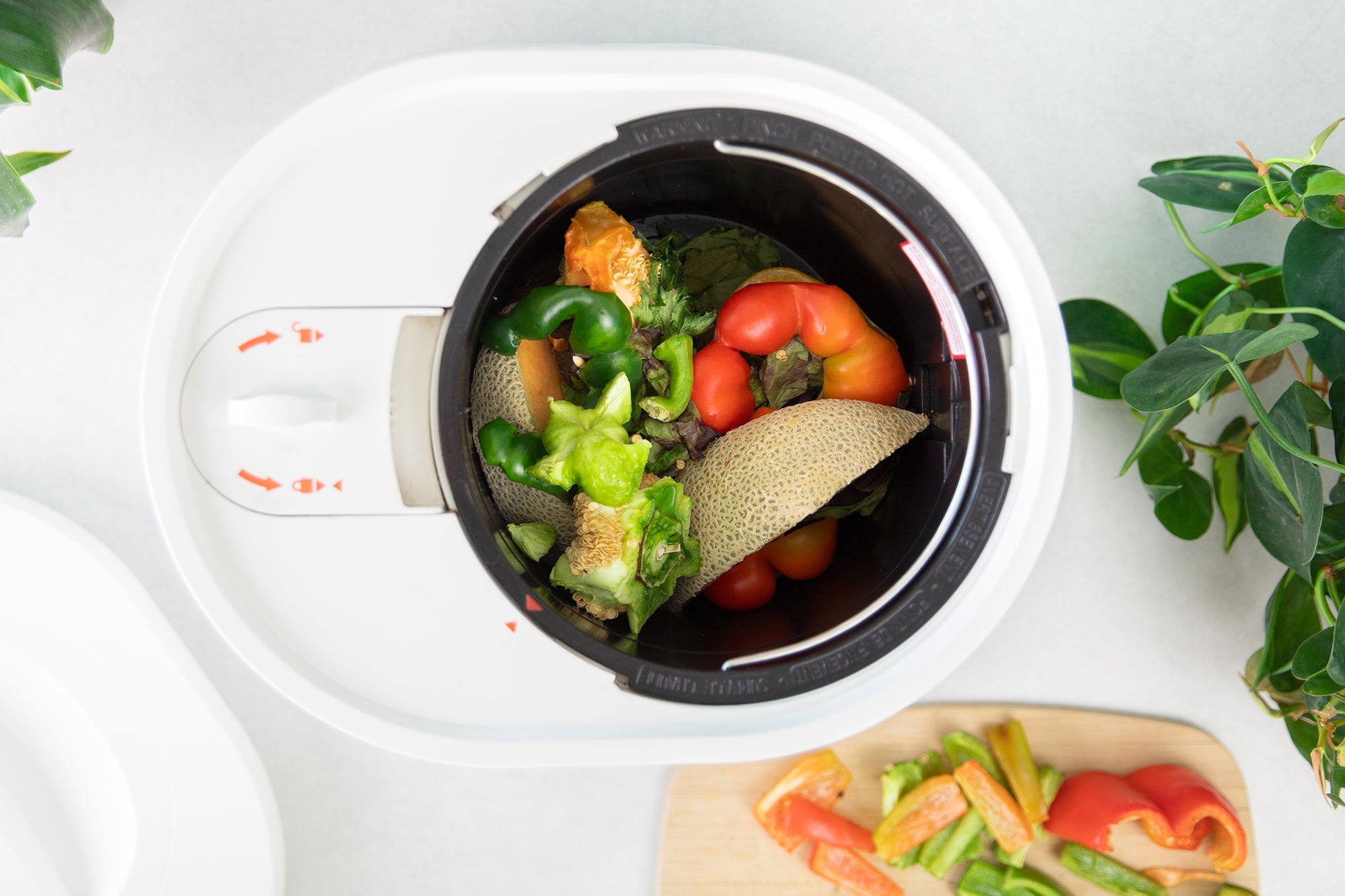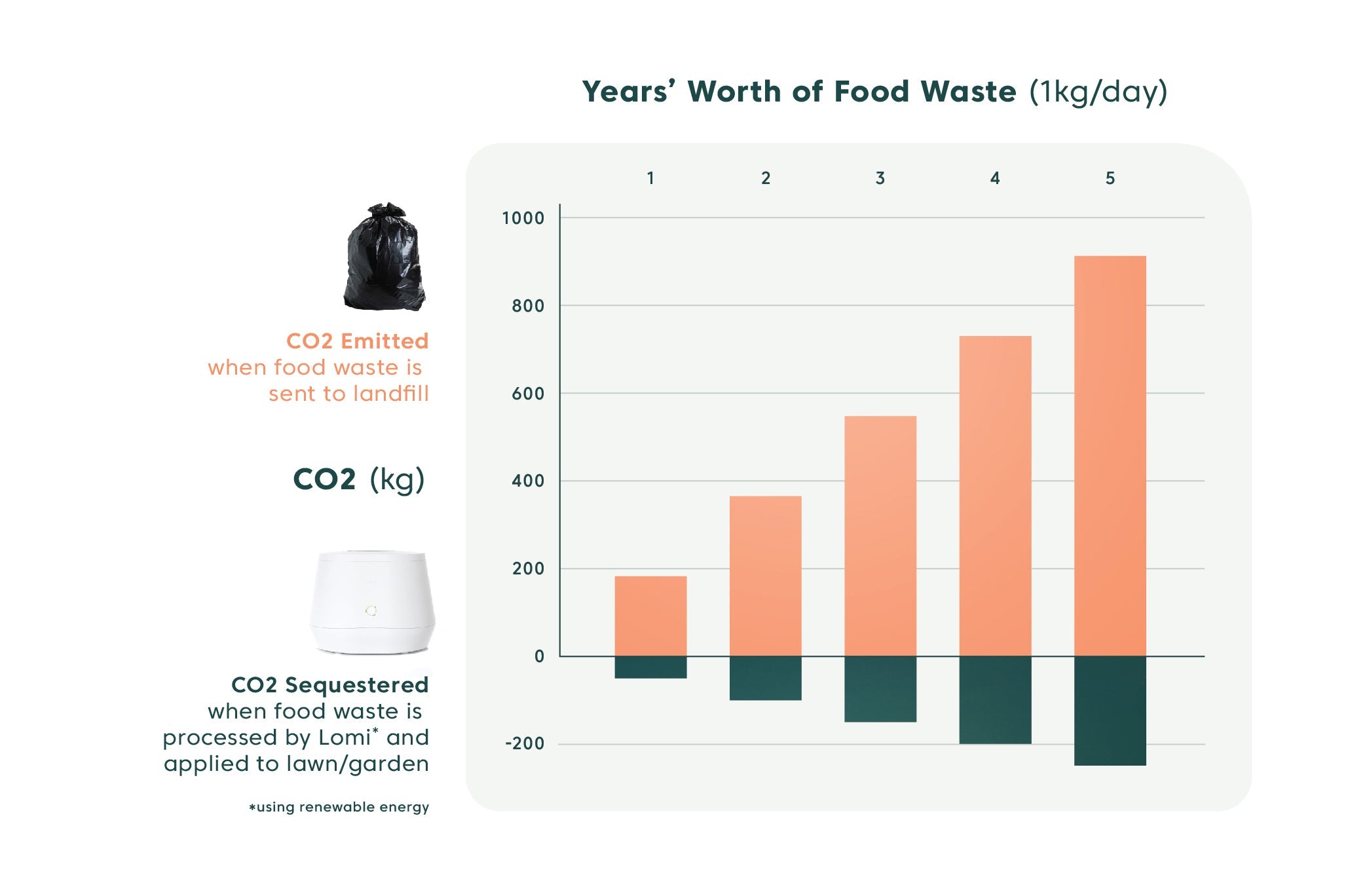
We’re on a mission to eliminate 10 Billion pounds of waste from the global waste stream by 2028

Through our team’s drive to innovate, we work to constantly develop new ways to reduce waste, create nutrient-rich fertilizer for the earth, and reduce the world’s carbon footprint - all at the push of a button.
Our proud partners

Carbon neutral operation
Learn More
Highest standard of responsibility
Learn More
43% of food waste in the U.S. happens at the household level.
That’s the equivalent of $165 Billion or around $2000 per family every year. That’s a lot of methane. When a household runs all their food waste through Lomi, the methane that would have been produced in a landfill decreases to zero.

Compared to throwing your waste in the landfill, using Lomi reduces your carbon footprint by up to 127%. So how do we do this/How does this work?
Lomi dirt is rich in organic matter and organic carbon. Typically, food waste breaks down in landfills anaerobically and releases methane, a greenhouse gas with 80x the warming power of carbon dioxide. When Lomi dirt is used in combination with soil to grow plants, these nutrients are broken down by microorganisms to help feed plants. Nutrients like carbon get stored in plant matter instead of released as carbon dioxide.

Even when taking Lomi’s energy consumption into consideration, your household’s food waste reduction will be significantly carbon negative.

½ the energy of running a dishwasher

43% of the energy required to power an oven for an hour

¼ the energy of using a dryer
2022 reduction plan

Make future Lomi models ten percent more energy efficient

Utilize more biobased materials in the production of Lomi

Engage with the Chinese manufacturing facility to encourage a shift to renewable power sources

97% of farms in the USA use synthetic fertilizer. Lomi’s revolutionary organic dirt changes that
Synthetic fertilizer is a non renewable, short term solution to a long term need, that can be dangerous to both humans and animals.
Nitrous oxide, one of the main chemical compounds found in synthetic fertilizer, is 300x worse for the environment than CO2e.

